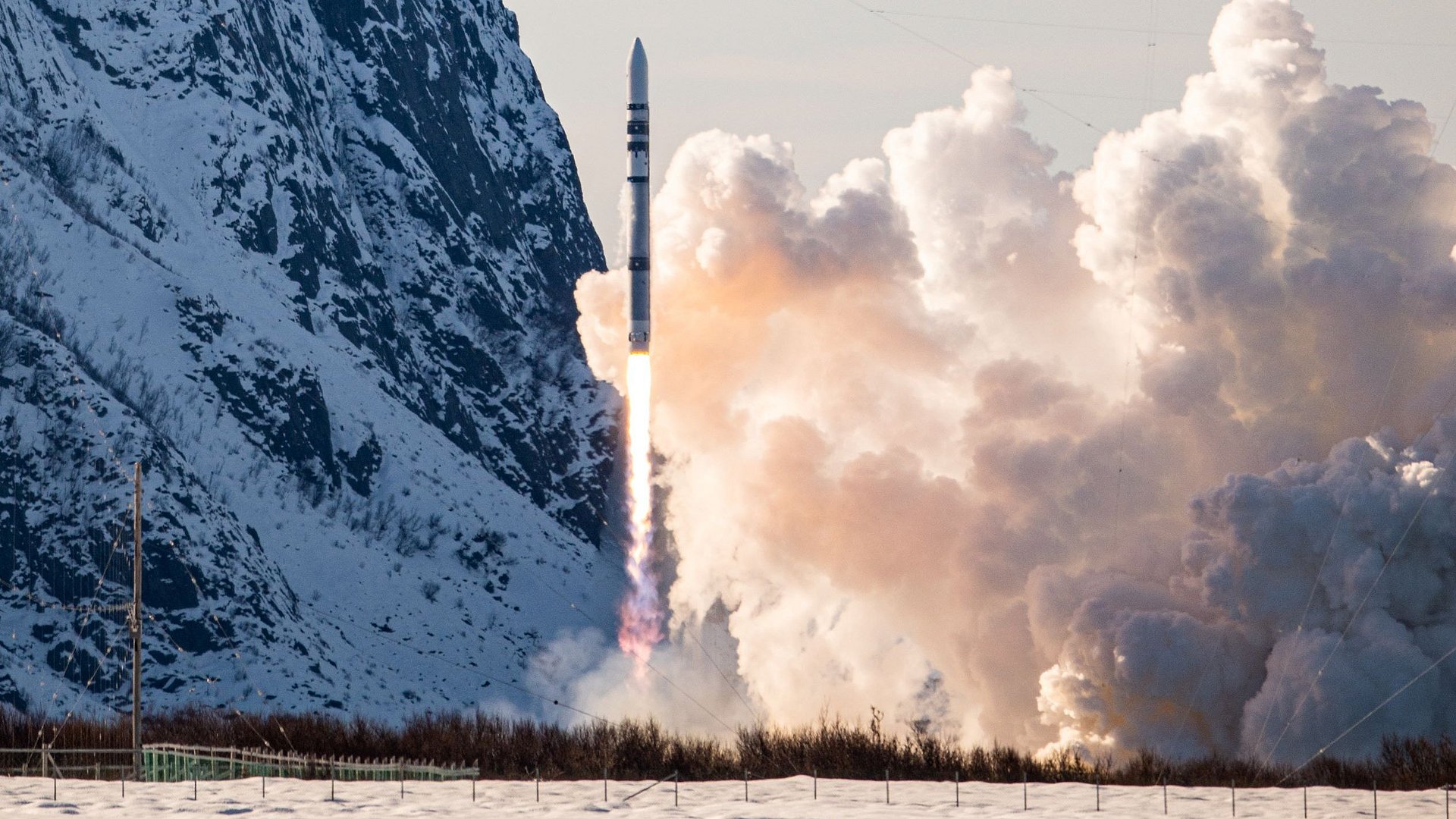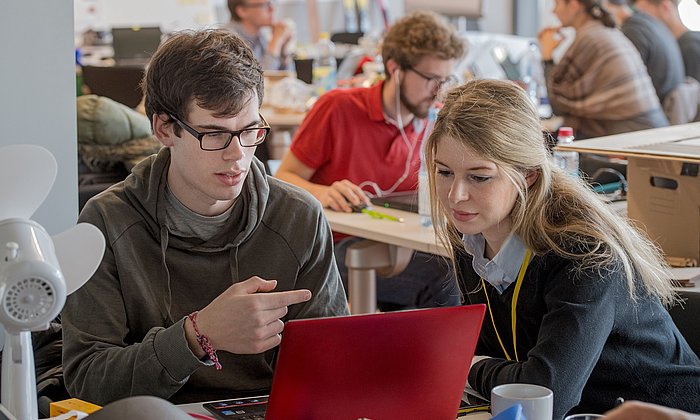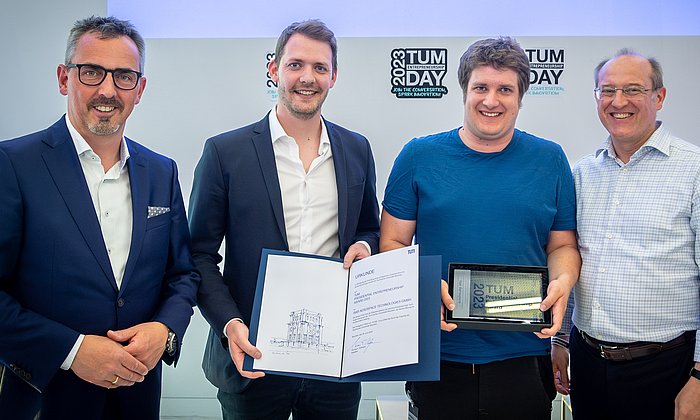Success for innovation ecosystem in aerospace
TUM spin-off launches first rocket

From communication networks to autonomous driving or digital agriculture: for dozens of new technologies, satellites are needed for data transfer. To make this possible, providers want to fire entire swarms of satellites into space. They will be relatively small and will move in low orbits. But existing rockets used for satellite launches are designed for much larger payloads.
The TUM spin-off Isar Aerospace has therefore developed a 28-metre-long carrier rocket tailored to small and midsized satellites. Today, the company launched it for the first time from the Norwegian spaceport Andøya. After the successful start, it made a short flight before falling. This is common for rocket tests, which are initially used to gather data and experience.
The test flight was the first launch of a carrier rocket towards orbit from Western Europe. The larger European Ariane rockets are launched into space from French Guiana in South America. Nowadays, the development of a European space infrastructure is considered important not only for economic but also for geopolitical reasons.
Origins in the student research group WARR
The founders Daniel Metzler, Josef Fleischmann and Markus Brandl studied aerospace at TUM. After starting their company in 2018, they built their first prototypes in the MakerSpace high-tech workshop of UnternehmerTUM, the Center for Innovation and Business Creation at TUM. They also received support in the center’s XPRENEURS incubator. Unternehmertum Venture Capital Partners invested in the start-up along with various other investors. So far, Isar Aerospace has raised more than 400 million euros in several funding rounds. The company is based in Ottobrunn near the TUM Department of Aerospace and Geodesy.
“This is a great success for our alumni and also further proof of the strength of our start-up ecosystem,” says TUM President Thomas F. Hofmann. “Isar Aerospace had its beginnings at TUM, the founders were already working on rocket engines in the student research group WARR. They were also accompanied and supported by us during the first steps of growth. And now the company has taken a huge step with the first flight of its space rocket. I congratulate them on this masterpiece and am proud that we as a university have contributed as well.”
Isar Aerospace in the video
(TUM Presidential Entrepreneurship Award 2023, from minute 5:09 on)
- The innovation ecosystem centered around TUM is regarded as one of the most successful deeptech hubs in Europe. Its particular strengths are its strong, diverse network and particularly specific support. In initiatives and co-labs, start-ups work on innovations with established companies, experts, investors and administration. TUM and UnternehmerTUM, the Center for Innovation and Business Creation, support start-up teams with programs that are precisely tailored to the individual phases of the founding process and the teams. The TUM Venture Labs offer direct access to cutting-edge research, technical infrastructure and market expertise in twelve fields of technology. Most recently, more than 100 companies were founded at TUM in one year and more than 1,100 start-up teams were supported by UnternehmerTUM and the Venture Labs. UnternehmerTUM, which invests with its own venture capital fund, has twice been voted Europe's best start-up hub by the Financial Times.
- TUM-Department Aerospace and Geodesy
Technical University of Munich
Corporate Communications Center
- Klaus Becker
- klaus.becker@tum.de
- presse@tum.de
- Teamwebsite





